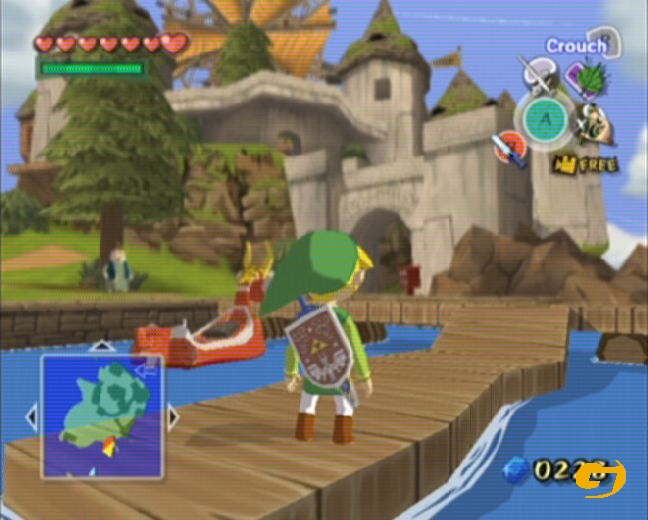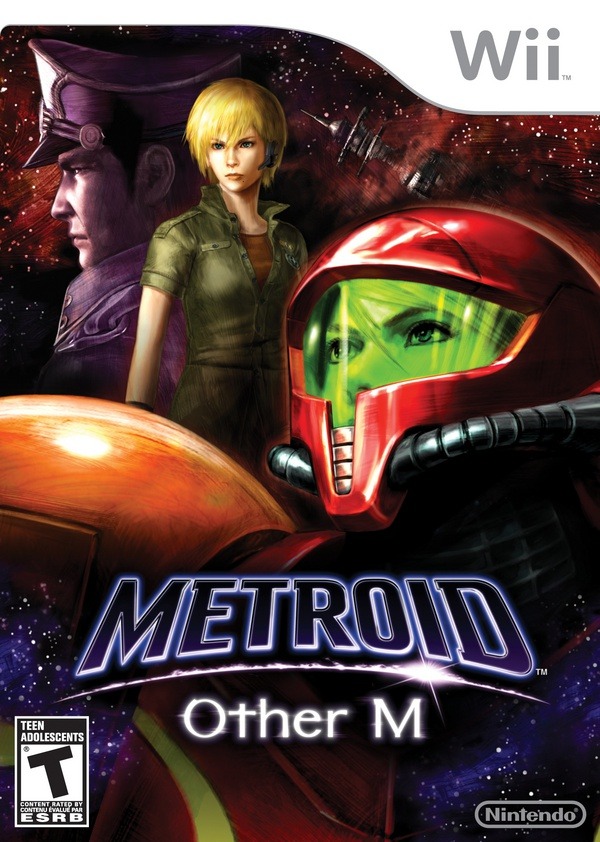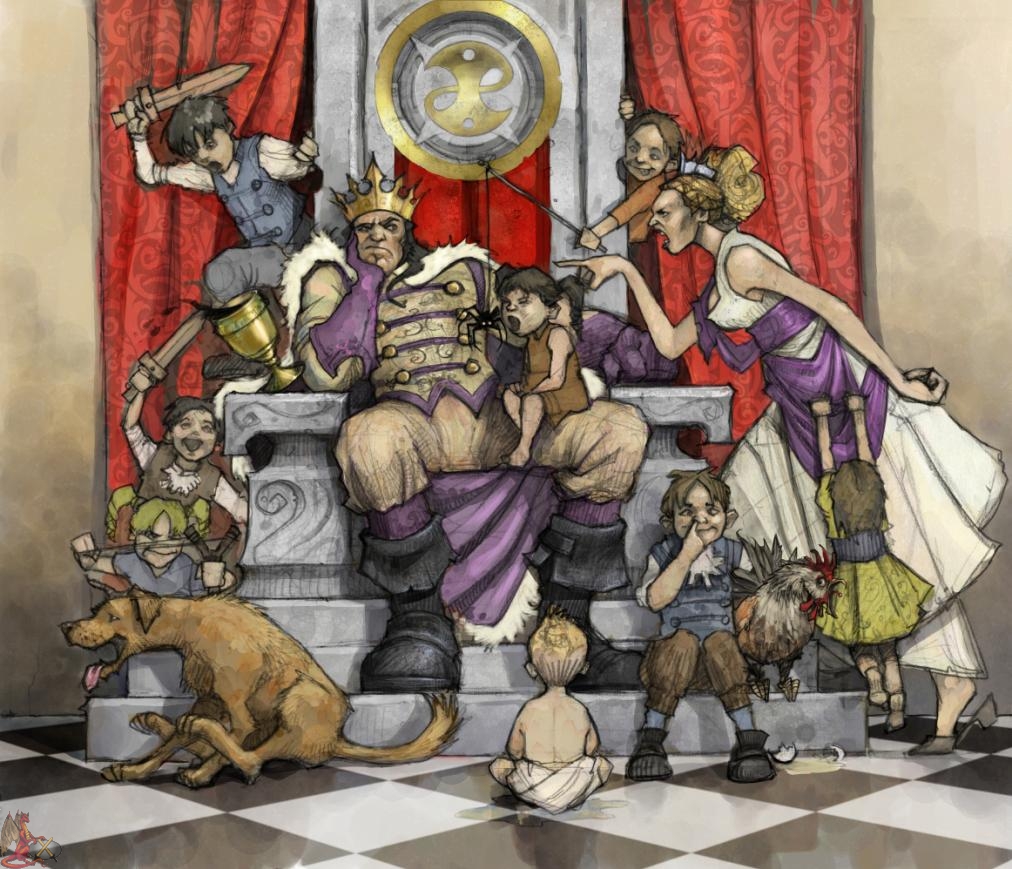Of course not... at least not in the traditional sense.
It would be easy to think that gaming is being torn apart, since traditional gaming generally means whatever
Nintendo is cooking in the kitchen. Nintendo use to bring us beautiful pies and cakes made of wonderful ingredients. Now, they are bring us half-baked cupcakes that taste kind of salty. They still taste good, and you'll probably want to eat another, but you're kinda hesitant, and hoping they have something to wash it down with.
Cooking analogies are fun.
The reason why we feel Nintendo is dying is because they seem to be losing their grasp on their audience. They cannot fathom focusing on a certain group of gamers (casual, social, core), because they use to have all of them under their thumb. Back in the NES-SNES days, you could rely on Nintendo to have your fix for whatever. You want some challenging Mario games to play? Nintendo. How about a great puzzle game? Nintendo. Shooters? Racing? Multiplayer? Nintendo had you covered. Unfortunately for Nintendo, however, gaming began to evolve and split up.
The audience for games has grown, but rather than liking all game types, they have split into different groups. The hardcore gamers themselves, who grew up with Nintendo, became two different groups. One group will not touch a game unless it reinforces their masculinity. Repetitive shooters, samey sports titles; They all came from this group, who don't want anything that seems "childish" or "feminine"... in the most juvenile sense... but instead want an unchanging male-power fantasy. And I truly mean unchanging because any significant change to the formula will drive away this audience. This is basically the "jock-frat guy" version of a gamer.
We also have the second of the "core" audience, who are the most likely to be reading this. There is no real term for them that fits, so I will call them
"Classic" gamers. These are gamers who are deeply invested in games as a whole. They will play those shooters, but for many different reasons than the "manly men" crowd. They play them because of memories of
Doom and
Duke Nukem on their old PC's. They'll often play them for the challenge and difficulty they bring, and usually for the story they tell. They too, want nothing to change on them, but at the same time they demand that things reinvent themselves. These are the people who complain about "another war game", but flip their lids over the announcement of a new Zelda that is usually the same version as
Ocarina of Time. Think of the people who groaned and complained about
The Wind Waker for using "kiddy" graphics (again, a juvenile view of what mature is... you'll see that alot), and celebrated the graphics and style of
Twilight Princess.
Personal opinion: Wind Waker was a beautiful painting, while
Twilight Princess looked like crap.

 That's some nice looking... flat textured grass there...
That's some nice looking... flat textured grass there...
This group of classic gamers are insanely hard to please, so I cannot blame developers for overlooking them as much as they do. Not that they should be, but I can't blame them from a business perspective. Besides, as much as this group (that I can usually count myself in... generally speaking) wants to believe, they are a rather small percentage that makes up the gaming audience. The first group has way more sway with developers and publishers because they are a larger crowd, like it or not, but they still usually just half-ass it so they can focus on more original titles for classic gamers and their own thirst for creativity. The biggest crowd with the most cash to spend, however? "
Casual" Gamers.
Considering the majority of the population have become smartphone users, they have now become targets for game developers. Everybody loves to play a quick game, whether with their friends or just to kill time, so that means possible income. But this crowd does not want to spend $60 to play some RPG with complicated controls. They just want to play something simple to grasp, like
Angry Birds or
Draw Something. This is fantastic from a business perspective because that means they can take games that would normally be considered a "minigame" to classic gamers, and make them into quick $1 games you can play while waiting in line at McDonald's. And since about everyone has a smart phone, you know you can sell it pretty easily.
Now, this is causing many developers to switch to making casual games because they are a business, after all. This is a large, new source of income, and it can't just be ignored. So while many classic gamers were ready to write off
iPhone, they noticed a trend happening. Console makers wanted in on this crowd, and Nintendo was leading the way.
 Why don't I have arms?... or that guy have legs?
Wii Sports
Why don't I have arms?... or that guy have legs?
Wii Sports brought in alot of new people to console gaming. The idea of a cool "virtual reality" game, the likes of which were usually left with buggy prototypes and science fiction, was too tempting for anyone to pass up. I have grandparents who were all excited to get the Wii just so they could go fake bowling, and that normally high $300 didn't sound that high. Nintendo was ready to accept this new crowd in, but quickly stumbled at the realization that maybe their existing audience didn't want them to come in.
Nintendo kept trying to find ways to appease both crowds, but usually failing to appease either. Causal gamers did not want the complexities of Zelda and Mario, while classic gamers did not want to simpleness of the Wii series of games. Casual gamers slowly got bored, as the only real appeal they had was the welcoming Wii Sports, while classic gamers began to write off the Wii as a casual system, and moved on the
Microsoft and
Sony. They would be back for the occasional Mario or Zelda title, but ignored the system otherwise. Nintendo needed to focus on either one audience or the other, because they were not gonna be able to keep both. So naturally, for their next system, who would they decide on?
 Sigh...
Sigh...
Ok, quick tangent on this game, which took up an unspeakably long amount of time at E3. This is
NintendoLand; Nintendo's sad attempt to make a game for both Classic and Casual gamers... and neither of which will really want it. The complexities of Nintendo's classic franchises are too big of a barrier for casual gamers. They had a hard enough time trying to explain the
Luigi's Mansion minigame to an E3 audience that got it after the first 30 seconds. The classic gamers gave it a nod in the vein of "Oh, that's cute. I might mess with that. So where are the real games?.... Wait, that's it?!?". This game has almost no audience, and is a sign the Nintendo slipped into a goldmine of money, but they have no idea how they got there or how to stay.
Back on topic now...
So now, Nintendo is bending over backwards to try and impress an audience that has a 5 second attention span, and Sony and Microsoft are trying to bend even further. They are lucky enough the have the developers that Nintendo scared off to keep making them some cash, but they are still spending too much wasted energy trying to convince people that they are the home versions of the iPhone.
Man I'm getting tired of writing, but luckily we're about at the point. This went on much longer than I intended.
So with big companies trying to ape the iPhone's success, what is to become of traditional gaming? Well, not much actually... though don't expect everything to stay the same either. Big epic adventures are not going away, but if they want to survive on this new medium, they have to learn to adapt. The biggest issue gamers have with the iPhone craze is the lack of buttons. Classic gamers see this and think "Well, I can't play
Skyrim on that.", and they aren't wrong. What this means is that developers have to learn to work with the new control option given to them, and how to make it become engrossing. Think about how The Legend of Zelda DS games used only the touch screen to play them (if I recall correctly). The developers saw a new tool, and figured out how to create an engrossing title with the use of a stylus and touchpad. We NEED developers to take that same approach to making smartphone games. How can we take this game style and mix it with new controls? The Wii developers tried this as best they could, but no one would want to choose Wii controls over standard buttons and sticks. Smartphone gamers have no choice in control options, so developers need to learn how to use what they have, rather than pining for what they lost.
Gaming is continually evolving, but that doesn't mean everything will go away. We still play classic-style platformers to this day, even though 3D seemed likely to kill it years ago. We will learn to adapt our games to new styles of play, because we will never want to give them up. So have no fear classic gamers. I don't believe your 13 hour gaming marathons are going to end... though they are gonna be changing, just like the progression from the NES and Genesis era to our HD era.
Oh, and don't use fake buttons on touch screens. They work terribly and are imprecise... Keep trying guys.















